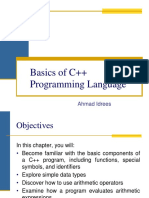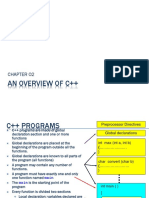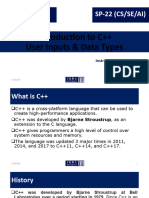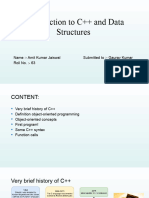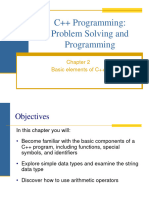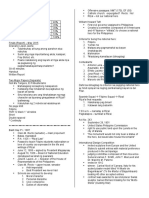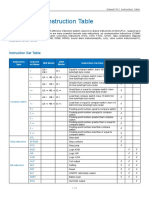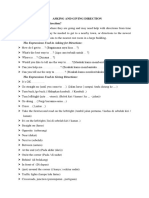100% found this document useful (1 vote)
25 views70 pages01.basic Syntax
The document provides an overview of basic C++ syntax, including program structure, data types, variable declaration, operators, conditionals, loops, and console input/output. It covers essential concepts such as the main function, local and global variables, and various control structures like if-else statements and loops. Additionally, it emphasizes the importance of understanding compilers and IDEs for effective programming in C++.
Uploaded by
Юлиан ЛюцкановCopyright
© © All Rights Reserved
We take content rights seriously. If you suspect this is your content, claim it here.
Available Formats
Download as PPTX, PDF, TXT or read online on Scribd
100% found this document useful (1 vote)
25 views70 pages01.basic Syntax
The document provides an overview of basic C++ syntax, including program structure, data types, variable declaration, operators, conditionals, loops, and console input/output. It covers essential concepts such as the main function, local and global variables, and various control structures like if-else statements and loops. Additionally, it emphasizes the importance of understanding compilers and IDEs for effective programming in C++.
Uploaded by
Юлиан ЛюцкановCopyright
© © All Rights Reserved
We take content rights seriously. If you suspect this is your content, claim it here.
Available Formats
Download as PPTX, PDF, TXT or read online on Scribd
/ 70














